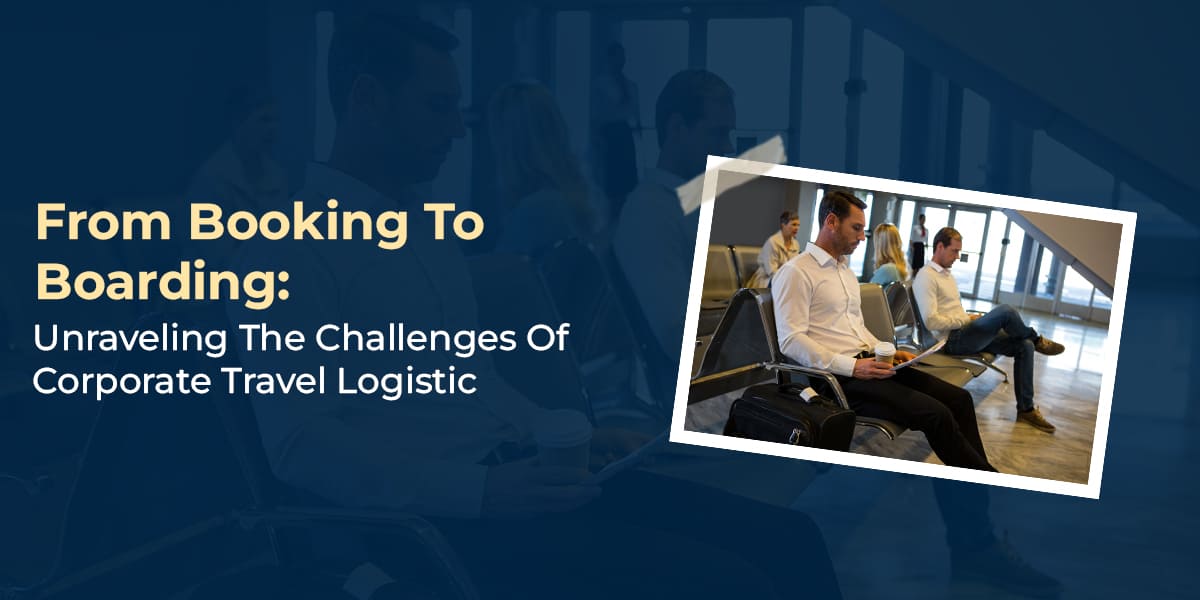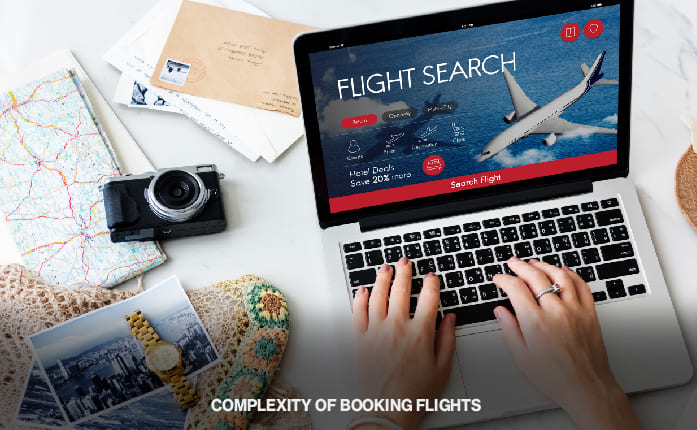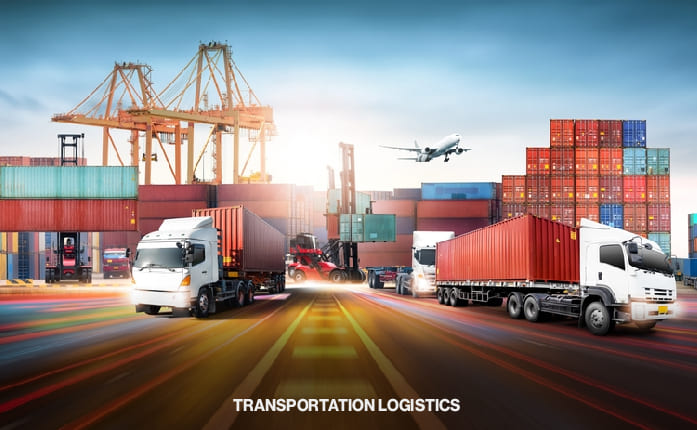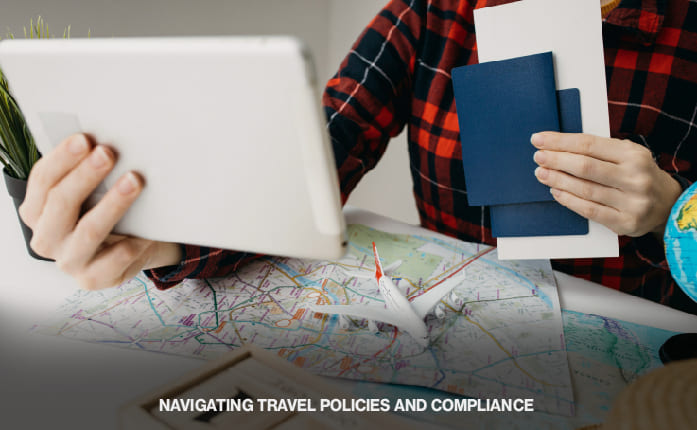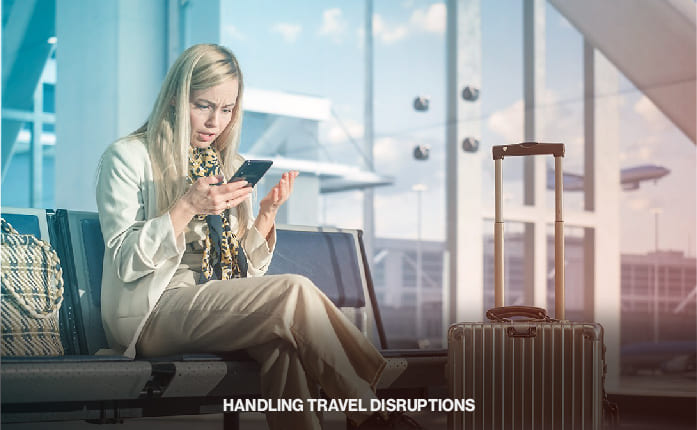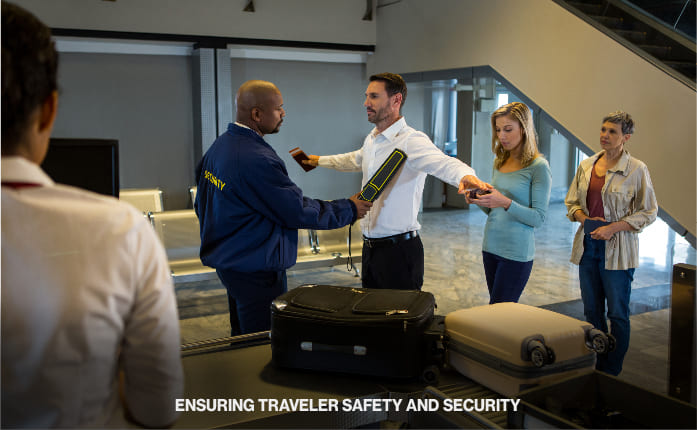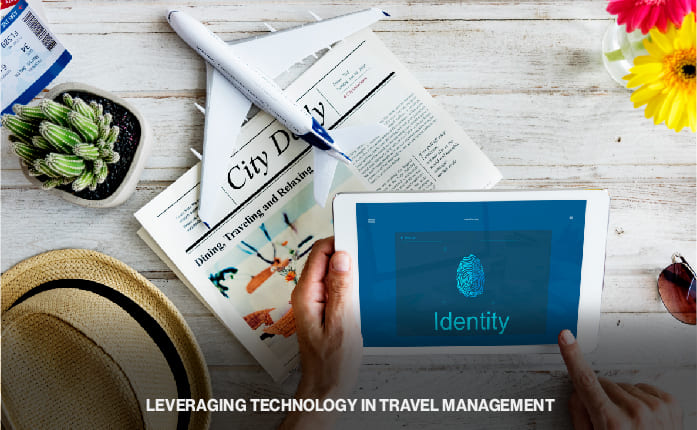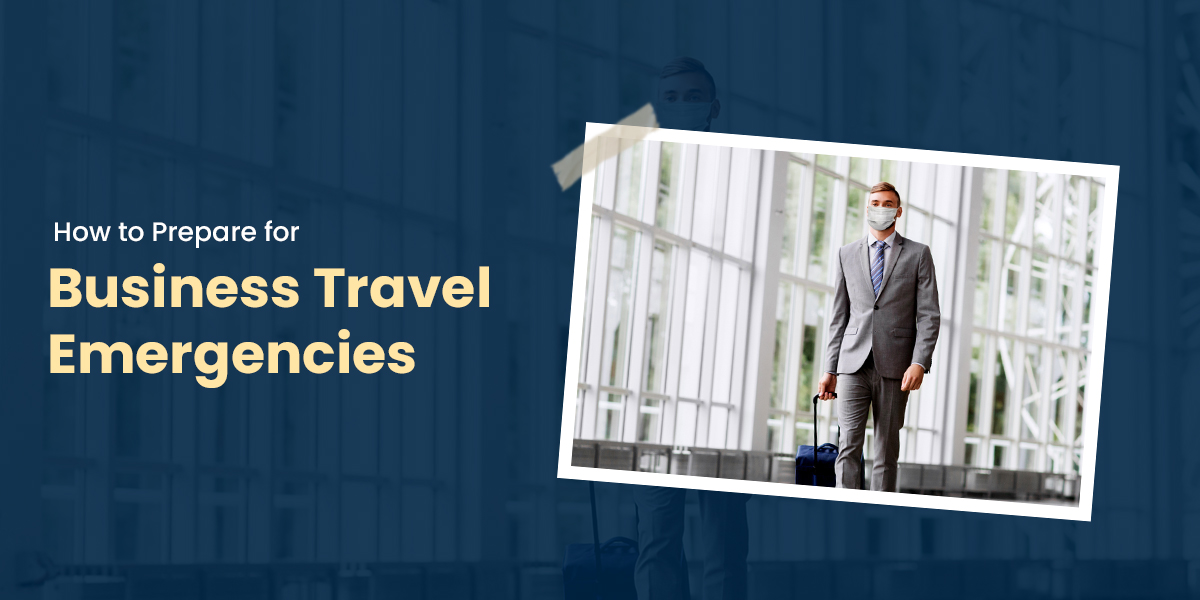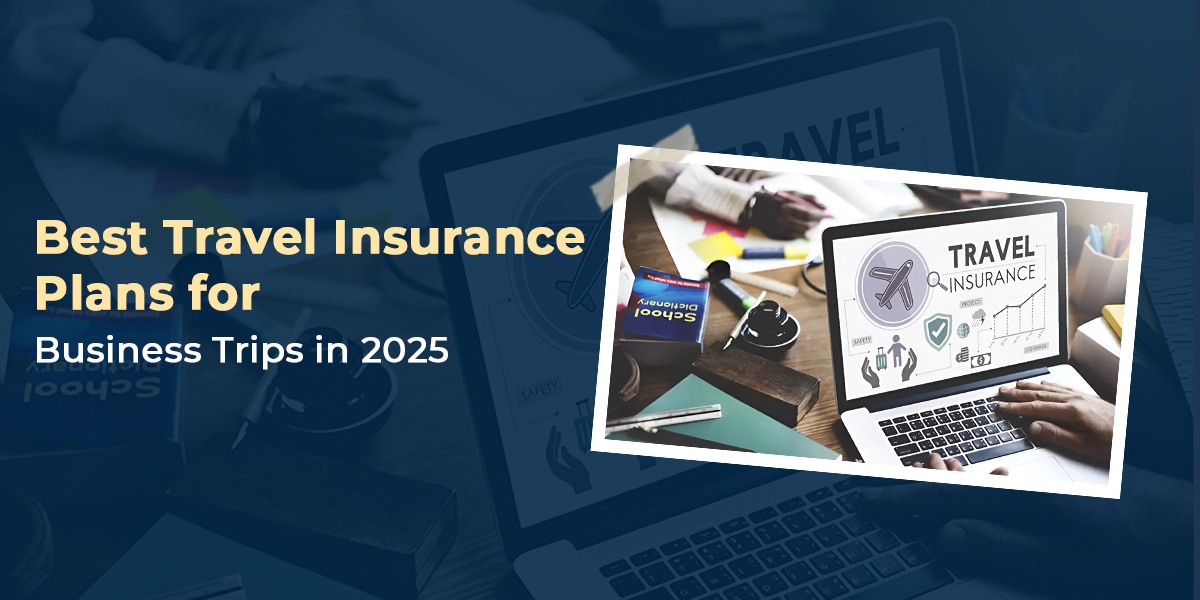You're picturing cool buildings and important meetings. But then things get tough. There are tons of flights to choose from, hotels with confusing reward programs, and expense reports that make your head hurt. You're getting buried in emails and airline rules you can't understand.
Don't worry; others are in the same boat! Lots of people who travel for work experience the challenges of corporate travel logistics. This blog is here to help. We'll show you secret ways to use hotel rewards programs, tips for long layovers at airports, and even tricks for surviving the dreaded middle seat. We're giving you a map to make your work trips smoother, faster, and maybe even more fun! Let's turn your next business trip from a giant mess into a chance to see new places, meet new people, and succeed!
Complexity of Booking Flights
Booking work trips is tricky! It's not like planning a vacation. You have to fit everyone's schedule, stay within budget, and follow company rules. Travel agents work hard to find cheap flights, deal with changes at the last minute, and get people to meetings on time. They also have to fix things if flights get canceled and rebook them. On top of that, some people like certain seats or airlines, which makes things even more complicated! It's like a juggling act—you have to plan carefully and decide fast to make sure everything goes smoothly, from booking a flight to getting on the plane.
Accommodation Arrangements
Securing suitable lodging for business trips presents hurdles. The process involves finding convenient, comfortable stays within budget, often multiple rooms for teams, handling special requests, and managing changes or cancellations. It's intricate, demanding attention to detail and adaptability. Balancing comfort, location, and cost adds complexity, especially with differing preferences and needs. Coordination is key amidst varied schedules and destinations. Addressing accommodation challenges requires proactive planning, effective communication, and leveraging resources. Despite the obstacles, careful navigation ensures smooth lodging arrangements, enhancing the overall travel experience.
Transportation Logistics
Getting employees around for business trips can be tricky, but planning it well makes things run smoothly. This means booking flights, cars, and airport shuttles, thinking about the best route and timing, and keeping in mind what travelers prefer. Things don't always go perfectly—flights get delayed, traffic jams happen—so being able to adjust quickly and fix problems is important. By making sure employees are comfortable and have everything they need, companies can handle this part of business travel easily, from booking everything to getting on the plane.
Navigating Travel Policies and Compliance
Managing company travel policies is challenging. Travel managers must balance budgets, vendor choices, and class limits while considering traveler preferences. Clear policies are essential, but enforcing them is difficult. Conflicts occur when travelers request exceptions or upgrades. Achieving compliance requires constant monitoring and communication. It's a delicate balance between meeting travelers' needs and adhering to company rules. Tools help, but human judgment is crucial. Success demands diplomacy, communication, and compromise. Ultimately, it's about creating policies that ensure smooth and enjoyable travel for everyone.
Managing Travel Expenses
Managing travel expenses poses a significant challenge in corporate travel logistics. It involves tracking costs, handling receipts, and ensuring accurate reporting. This task demands meticulous attention and organization to stay within budgetary constraints. Implementing efficient expense management systems can streamline the process, but complexities persist. Making sure travelers are happy while following company rules can be tricky. Inaccurate expense reports can mess up the company's finances and make it hard to make decisions. This is why having good ways to track expenses is important for business travel. It helps companies save money and run smoother overall.
Handling Travel Disruptions
Stuff going wrong during business trips, like missed flights, can be a real pain for everyone involved. It throws off schedules and can cost extra money. To deal with this, travel planners need to think ahead and be ready to change plans quickly. They should always be on the lookout for problems and have backup plans to lessen the blow. Talking to travelers about what's going on and helping them out is super important. Being able to bend and switch things around is key, because sometimes you have to book a whole new flight or hotel. By being quick to react and able to adjust, companies can handle these trip troubles smoothly, keeping business on track and travelers happy.
Ensuring Traveler Safety and Security
Ensuring business travelers' safety is challenging. It requires risk assessment, traveler guidance, and monitoring of global news. Planners must anticipate issues like health outbreaks and conflicts to prevent them. Robust security measures, such as tracking systems and 24/7 emergency assistance, are essential for quick response. Training travelers on safety awareness enhances preparedness. Despite thorough planning, travel safety constantly evolves, necessitating ongoing adjustments. Prioritizing traveler safety and implementing effective security strategies help companies reduce risks and ensure safe journeys for their employees.
Leveraging Technology in Travel Management
New travel technology makes things easier! Tools help you book trips, track costs, and plan things out. The right software makes managing your travel a breeze. There are even apps to chat with people while you travel and make the whole trip more fun. Websites let you find flights and hotels right away. Using smart technology helps you pick the best options and even avoid problems on your trip. But picking the right technology is important. Confusing programs with no training can be a pain. Also, keeping your information safe is key. But overall, using technology for travel management gives businesses a super-powered way to handle all the complicated stuff that comes with work trips.
Sustainability and Corporate Travel
Balancing corporate travel and sustainability is challenging. Companies need to minimize their environmental impact while fulfilling business needs. Virtual meetings, carbon offset programs, and eco-friendly accommodations help. Aligning green practices with travel needs requires planning and commitment. Embracing sustainability without losing efficiency is crucial. With growing awareness, integrating eco-conscious choices into corporate travel is essential. This balance shapes the future of sustainable corporate travel, merging business goals with environmental responsibility.
Wrapping Up…
Planning business travel can be tricky. It takes a good plan, careful attention, and being able to handle surprises. By understanding the challenges we talked about, companies can make their travel planning smoother, improve employee trips, and reach their business goals better.
The travel industry is always thinking of new things. As business travel changes, keeping up with the latest information and using technology will help handle these changes and make sure travel runs smoothly and efficiently. New tools and technology are emerging daily, promising smoother bookings, smarter itineraries, and maybe even sleep-inducing airplane seats (one can dream!).
So, while the challenges may never disappear entirely, who knows? Your next business trip might involve a jetpack and a teleport to the conference room. Until then, stay tuned, buckle up, and have happy travels!
